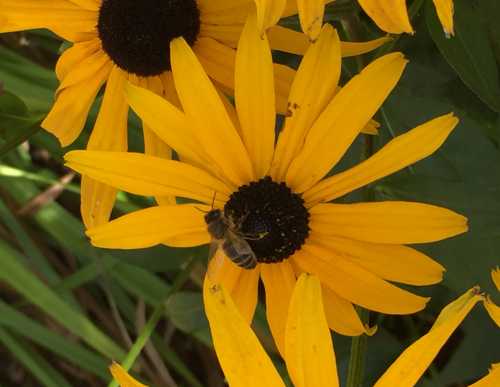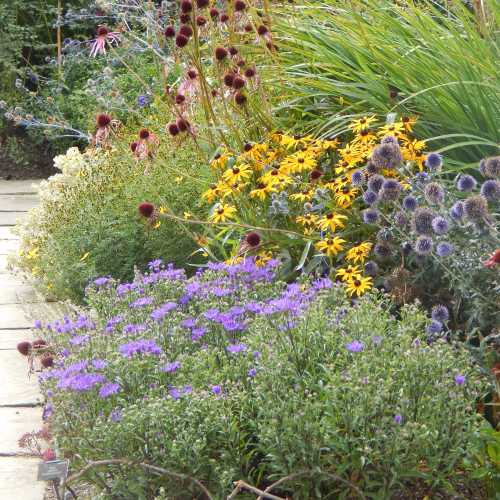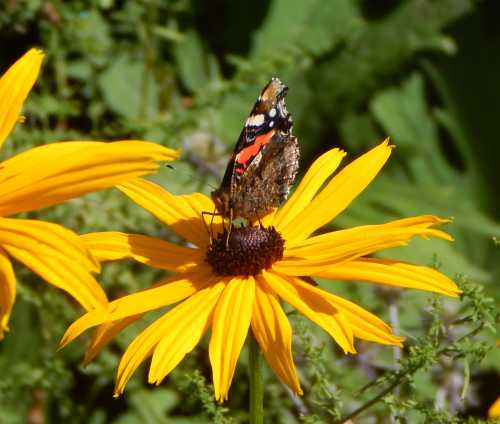Plant Rudbeckia For Bees And Butterflies
Rudbeckia are one of the coneflowers along with Helenium and Echinacea. It's no surprise that with their lovely open, sunny faces, they are attractive to bees and butterflies alike.
Among the most popular for gardeners and bees are the varieties 'Goldsturm' and 'Black-eyed Susan'.
They have lovely dark centres, but if you want something different, 'Black-eyed Susan 'Prairie Sun'' is also attractive for pollinators and the centre is an interesting shade of pale green.
There are varieties with bi-coloured florets too, and beautiful Rudbeckia with rich copper petals.
 Honey bee on Rudbeckia.
Honey bee on Rudbeckia.Rudbeckia look wonderful planted in bold drifts if you have space in your flower border. They are simply gorgeous next to blues and purples, but I have also seen them close to grasses and it provided an interesting textural contrast.
In late summer to autumn (from around August through to October) when they are in flower, they brighten up the centre of the flower border, and provide food for bees, butterflies, hover flies and various beetles.
 Golden yellow Rudbeckia add a lovely splash of sunshine to the flower border.
Golden yellow Rudbeckia add a lovely splash of sunshine to the flower border.
How to grow Rudbeckia
Grow Rudbeckia in full sun or a little dappled shade in well drained but fertile soil.
Grow from seed sown in spring under cover.
Divide perennial varieties every few years.
 Red admiral butterfly on Rudbeckia.
Red admiral butterfly on Rudbeckia.More articles about bees and plants
- Bees And Brambles: The Value Of Brambles To Bees Also known as blackberry bush, research shows each bramble flower secretes lots of nectar for bees!
- Bees And Bee Balm Bee Balm (Monarda) - also known as 'Bergamot) is a herbaceous perennial which is attractive for bees.
- 30 Fantastic Garden Flowers For Bees Flowering plant recommendations for the perfect bee garden.
- Bees love lupins – but so do slugs and snails, so what can you do? Here's a way to protect your lupins....using garlic!
- Plant Oregano For Bees (Marjoram) It's rich in nectar, and attracts bees, butterflies and hoverflies in summer. Here's how to plant it.
- Fennel Pollen And Nectar Bees love fennel! How to grow it, gather it, and the many uses of fennel seeds and pollen.